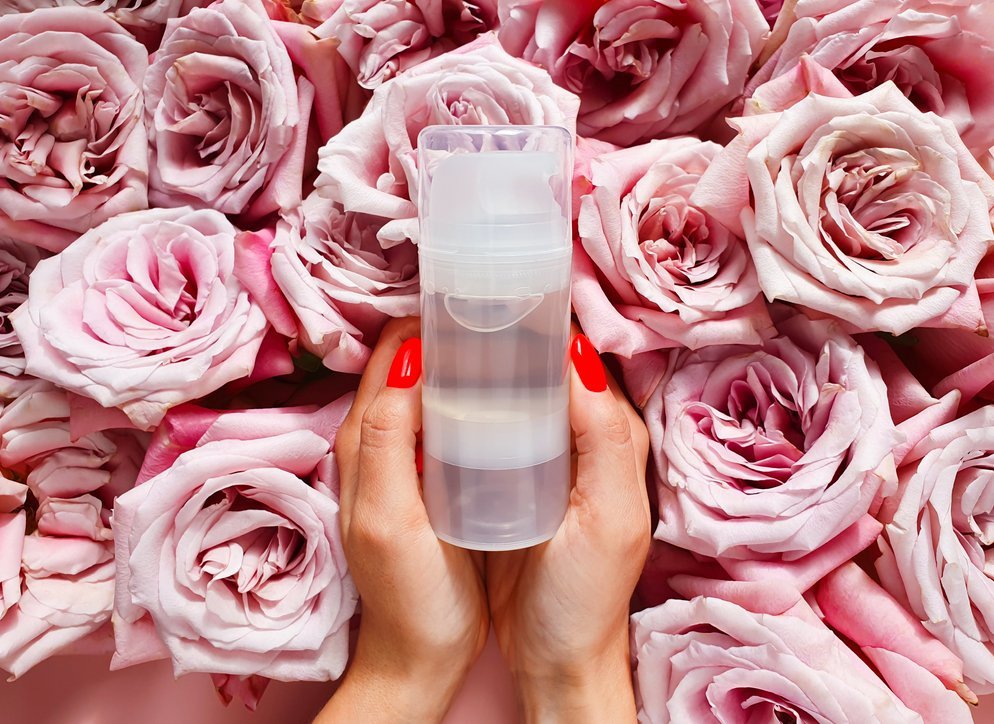This month our BDSM advice guru Molly has some great advice for one kinkster dealing with painful intercourse – AKA dyspareunia – which began after she started the menopause. Cultivating intimacy, exploring new types of sex and lovin' lube is the way to go.
Dear Molly,
I am 50 years old and have recently started suffering from symptoms of the menopause, including painful intercourse. I have been to my doctor and been diagnosed with dyspareunia. The advice I was given on how to deal with this was to just give it time and use more lube. However, it has left me and my partner feeling a bit like this might be the end of our sex lives. We've always had a very active sex life up to this point including lots of D/s type play, but sex has always been a huge part of what that was about. Do you have any advice you can offer me on how to deal with painful intercourse?
Mrs. 50 is not old
Dear Mrs. 50 is not old,
I like how you have signed your message to me and you are absolutely right; 50 is most definitely not old. But I'm sorry to hear that intercourse is painful for you at the moment and that it could be due to the fact that you have started the menopause. However, you'll be thrilled to know that having dyspareunia (painful intercourse) definitely does not mean the end of your sex life. Indeed, just because you are having painful sex now does not mean you will for the rest of your days.
What is dyspareunia?
Dyspareunia (pronounced dis-puh-ROO-nee-uh) is basically a catch-all term for physical pain and discomfort during sexual intercourse. That might be a very specific pain on the surface of the genitals or at the opening of the vagina, or pain located deeper in the pelvic region.
It’s estimated that 35% of women will experience some form of dyspareunia during the course of their lives. There are multiple causes of this type of pain, from short-term issues like urinary tract or yeast infections, to trauma from child birth or surgery, endometriosis, hormonal contraception, menopause and psychological triggers.
It's really important to see your doctor if you’re living with dyspareunia as it can potentially be a symptom of something that requires further investigation and treatment. Dyspareunia is not the same thing as vaginismus. In fact, vaginismus is a form of dyspareunia.
Living with painful sex after the menopause
You don’t say if the doctor has confirmed the cause of your pain during intercourse as menopausal-related, but I'm going to assume that is the case. If so, then whilst their advice sounds flippant, using more lube is actually one of the things that can really help.

Painful sex after the menoapause? Make lube your best friend!
If you’re experiencing symptoms of the menopause and your doctor has not offered other solutions, then I would suggest returning to them and asking about possibly trying Hormone Replacement Therapy (HRT). That’s because the main cause of painful sex connected to the menopause is the change in your hormone levels. HRT can rectify that and therefore reduce the chances of painful intercourse.
Love lube and and take your time
Vaginal dryness can be caused by many things, such as taking contraception, breast feeding, and being ill. However, it's also one of the symptoms of the menopause. So, lube really is your best friend here when it comes to having pain-free sex.
Saying that, you may already know that not all lube is created equally, so shop around for one that you particularly like. I would recommend a water-based lube as they tend to be less likely to cause any kind of physical reaction, but if your lube does make you feel itchy or uncomfortable, try another one because there is definitely one out there which suits your body.
“ The main cause of painful sex connected to the menopause is the change in your hormone levels. HRT can rectify that and therefore reduce the chances of painful intercourse.”
When it comes to ‘taking your time’, I suspect what your doctor meant was for you to just wait and see if the painful intercourse improves or worsens. However, what would actually be more helpful is to take more time in the run-up to intercourse and during sex. Incorporate lots of foreplay and touching to help your body relax and build up arousal. Indeed, the more aroused you are, the less likely it is for intercourse to become painful.
Also, when it comes to penetrative sex, try different positions. For some women, this pain is not at surface level but more internal, and so changing positions can mean that the penis is not as deep inside or not putting pressure or a specific area. It might be that for now the quickie should be on hiatus (!), but adapting to these changes can still be fun and satisfying for both you and your partner.
Sex is more than PIV
It can be really easy to fall into the trap that sex is ‘penis-in-vagina’ (PIV) and that if you don’t have PIV then you are not having sex. All of us kinksters know that this is absolutely not true. It also means you lose out on potentially enjoying lots of other forms of sexual play that can be just as fulfilling.
So, as the menopause seems to be leading to painful intercourse for you, spend more time exploring other things like oral sex, anal sex, vibrators, and other sex toys. It is possible that whilst full PIV sex might be painful, maybe just a single finger or a small sex toy might not be. 
Sex too painful? Cultivate intimacy and explore playfulness instead
Also, spend time cultivating intimacy between the two of you. Try taking baths and showers together and giving each other massages. Spend a few days only kissing each other and not have any other type of sexual activity to build desire and playfulness. Have fun with your partner but also with yourself, relearning your body.
Try new kinks
You mention kink and D/s being part of your sex life but that sex, by which I assume you mean PIV, has always been the main feature of that. So, seeing is intercourse is currently painful for you, maybe now is the right time to explore together other aspects of your kinks.
“As the menopause seems to be leading to painful intercourse, spend more time exploring other things like oral sex, anal sex, vibrators, and other sex toys.”
You could indulge in elements of denial play, depending on who likes to take the dominant role, and explore orgasm denial or orgasm control with them. Also, try to focus on the pleasure of other aspects of your play together that are maybe not directly linked to penetration and orgasms. For many people a really good spanking or impact play session can give them the same sense of relief and relaxation that they get from penetrative sex and orgasms. It’s about reframing your play and finding new ways to enjoy each other’s bodies.
Accepting change and move on
Change is a big part of life that can be really hard to accept and adapt to, but it can also be an opportunity to discover new things about yourself and the people in your life. The chances are that dyspareunia is not long-term. For many women, addressing the cause of the pain during sexual intercourse can be the solution, so if in your case it is linked to the menopause, then there are options you can explore with your doctor to help with that which will likely ease or even solve the issue.
Please don’t feel despondent and like this is the end of your sex life: that type of thinking is likely to make it worse for both you and your partner to deal with this change. Instead, try to communicate with your partner about how you are feeling and that together you can find new, exciting and satisfying ways to continue to enjoy and explore your sex life together.
Remember, I am not a doctor and I am purely giving you advice and ideas for how to continue to have an active and happy sex life with your partner whilst living with dyspareunia. If you’re reading this and are suffering from any form of pain during sexual intercourse – be it after the menopause or not – then you should see your doctor.
Good luck!
Molly x
If you need any more Domme dating advice, or want to discuss any other kink-related issue, contact Molly via her Fetish profile. Domme looking to date? Join our forum!

Images: shutterstock/Kozub Vasyl, shutterstock/vittoria_vittoria
-
 42
42




Join the conversation
You can post now and register later. If you have an account, sign in now to post with your account.